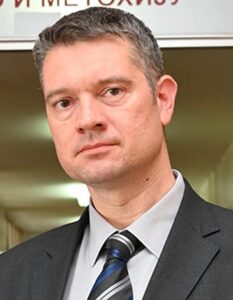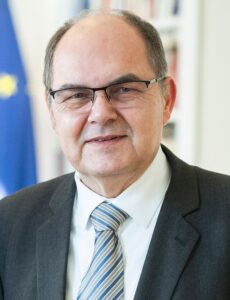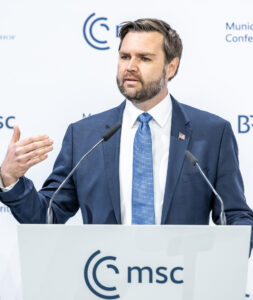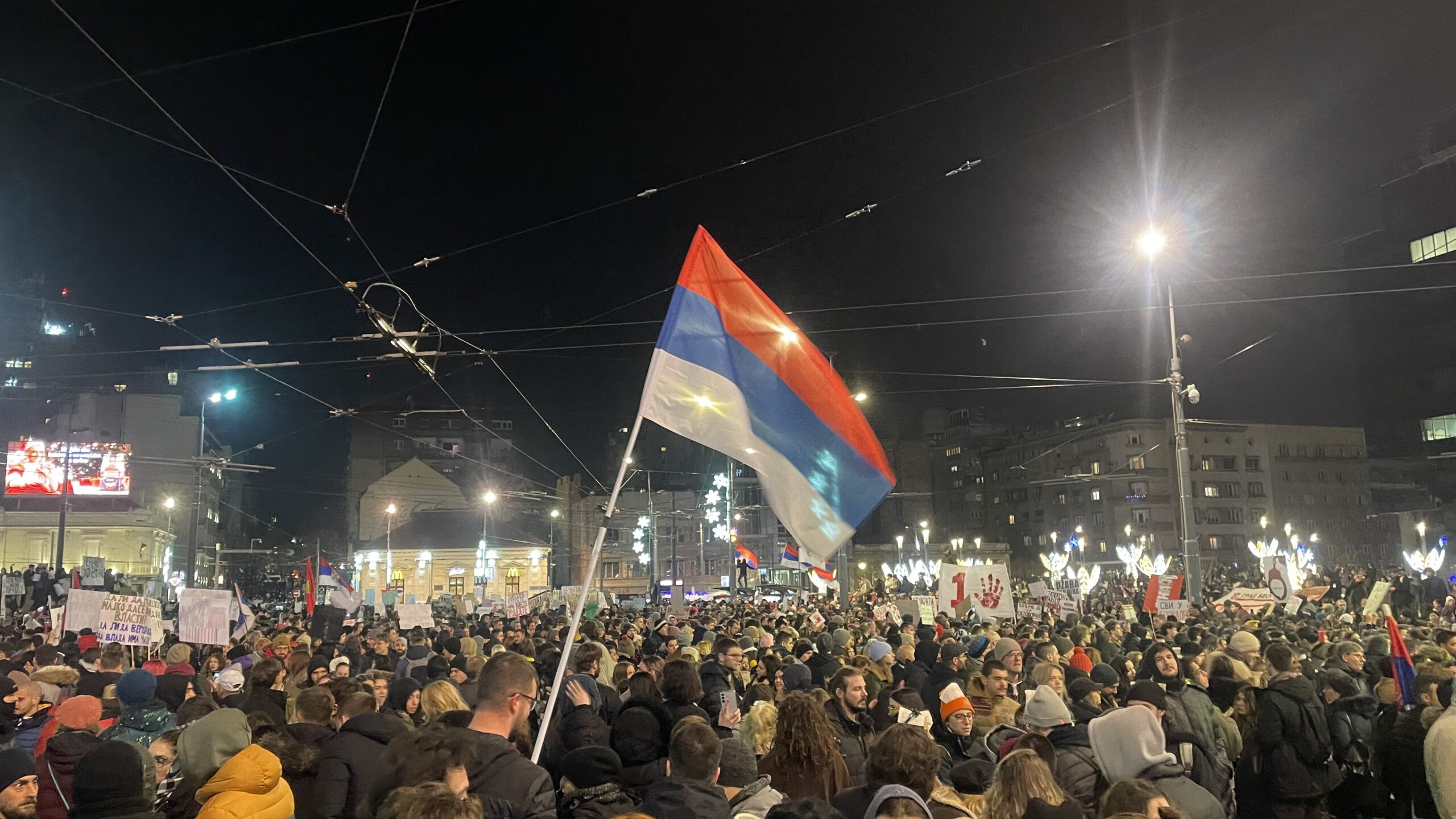21 August 2025
It is no secret that I think the road to European security runs through the Balkans. The greatest issue facing European security lies here, and central to this is a failure of NATO and the EU to engage with Serbian problems appropriately. In recent days, several events occurring in parallel to one another have me again thinking about how easily the Balkans could be nudged into a crisis that would severely hamper Europe’s efforts to confront Russia. At its heart, I believe, remain unresolved issues concerning the Serbs that are rooted in an inappropriate holdover from the Yugoslav wars of the 1990s that leave Europe and NATO viewing and treating Serbia in ways which are arguably misguided if not hypocritical. I don’t have the space here to delve into a historical analysis of the Yugoslav wars of the 1990s to justify this claim. You may disagree, but regardless of how you feel about this view, I think the following assessment will still track.
I would start with looking to Kosovo, where Members of the Kosovo Liberation Army’s Veterans Organization and other organizations rooted in Kosovo recently launched major protests against the Kosovo Specialist Chambers war crimes court. Established in 2015, under pressure from Western allies, to investigate the alleged crimes of the KLA, the Specialist Chambers are located in The Hague. Since 2020, four top leaders of the KLA have been held by the court facing charges that include murder, torture and persecution of civilians during and after the war. Last month, the Specialist Chambers dismissed a joint motion from the defence that these charges be dismissed on a technicality that the charges include alleged crimes that happened before May 1998 and after June 1999 and thus did not occur during the Kosovo war.

This comes when, the Pristina Basic Court has jailed Igor Popovic, the deputy head of the Serbian Government’s office for Kosovo. He was charged with inciting ethnic hatred after calling the KLA, a terrorist organization, in a speech made in July to ethnic Serbs in Kosovo. Popovic has been sentenced to six months in prison, or possibly a 3,000-euro fine, and has been banned from Kosovo for two years. Serbia’s Foreign Minister, Marko Đurić, described Popovic’s arrest as “unfounded and illegal,” and the Serbian Police and Serbia’s intelligence agency, the BIA, have reportedly been asked to investigate the matter as a criminal kidnapping.

All of this is occurring under the umbrella of an ongoing parliamentary crisis. The Constitutional Court of Kosovo was recently required to resolve a prolonged parliamentary deadlock resulting from the recent Kosovo elections in March. This situation is rooted in no party having secured a majority in the elections. This has led to no less than 37 failed attempts to inaugurate a new legislature, which centres around electing a speaker for the House. The Court was asked to clarify voting procedures and determine if the assembly’s constitutional deadline has expired. The Court has now ordered MPs to reach a consensus within 30 days.
This is just another electoral or parliamentary crisis which has become the norm across the Balkans. While a worrying situation evolves in long-troubled Kosovo, there remain ongoing issues for the Serbian population. While the Kosovar Government seems unable to even agree on forming, never mind functioning, Belgrade no doubt continues to worry about the ethnic Serb population and follows events closely.

Simultaneously in Bosnia, a similar issue plays out that has, no doubt, caught Belgrade’s attention. Bosnia’s electoral authorities have stripped Serb separatist leader Milorad Dodik of his position as president of Republika Srpska. This comes after an appeals court confirmed an earlier court ruling that sentenced him to one year in prison and banned him from politics for six years over his separatist actions and defying the orders of Christian Schmidt, the current High Representative for Bosnia and Herzegovina. Dodik has repeatedly called for Republika Srpska, the Serb-run half of Bosnia to separate and join Serbia. Although Dodik will avoid prison by paying a fine, Bosnia’s electoral commission decision to apply a law which automatically removes an official from office if sentenced to more than six months in jail has created a potential flashpoint.

Dodik has long railed against the power structure established in Bosnia and Herzegovina following the Dayton accord which have left the country split along ethnic lines (the Federation, where Bosniaks share power with Croats and the Serb-dominated Republika Srpska). Above this sits a central government with no real power and the foreign High Representative, who holds far-reaching powers to maintain peace. Even defenders of Bosnia’s institutions find it hard to justify the High Representative’s unilateral authority. This creates a prime target for Dodik.

Having spent so long raging against these institutions and emboldened by his allies in Budapest and Moscow it remains to be seen how Dodik will respond. He has already laid down a challenge asking, “What if I refuse?” He has also stepped up his overtures to the Trump administration, painting himself as a victim of lawfare, echoing the illiberal criticisms of JD Vance’s Munich speech and a Christian leader in a Muslim-majority country fighting against European authorities’ rejection of the will of his people. It should be said, not entirely without justification. Dodik also remains a longtime key Balkan ally of Russian President Vladimir Putin and useful tool for Moscow in efforts to foment unrest in the Balkans. Indeed, the Russian embassy in Bosnia has already warned that the region could spiral “out of control” and that the country was making a “historic mistake.” Bosnia may soon find out if this is the case.
Some argue Dodik’s removal might finally create the space to allow the state to sweep away his corrupt patronage network. However, without much to lose it remains to be seen if Dodik won’t take action that destabilised the country. Situations like this are ripe for Russian manipulation which aims to weaken and distract the West while Putin takes Ukraine and draws as much of Eastern Europe into the Kremlin’s orbit as possible, preferably by manipulation but clearly by force is not off the table for Putin.
In connection to this threat, one might look to Bulgaria, which is emerging from a prolonged political crisis that I have written on more than once. This political instability has undermined media freedom and the fight against disinformation. There remains no national disinformation strategy. Recently, their Council for Electronic Media failed for a third time to elect a new director for Bulgarian National Television, BNT. Compounding the problem, Bulgarians are particularly vulnerable to disinformation, with the lowest rate of media literacy in Europe. Bulgarians are deeply distrustful of authorities, avoid the news, and only a third have basic digital skills.
This all reflects a deeper erosion of democratic institutions, which began with a failure to respond meaningfully to the 2020 anti-corruption protests. The judicial reforms demanded by Bulgarians at that time failed to materialize. In the recent power vacuum, disinformation has, as I predicted, metastasized. This was far from an organic process but the result of intentional media capture and political theatre where politicians have weaponized media, and politically connected media owners, and foreign actors. In addition to voter fatigue, distrust of democratic processes, and the chronic instability seen in Sofia, Bulgaria has turned into a conduit for Russian influence operations in the Balkans. Likewise, one could look at Montenegro, which recently suffered a political crisis, exploited by Moscow.
In 2024, the Bulgarian collective BG Elves exposed a network of 51 companies tied together through opaque ownership chains used to run a Russian-funded social media campaign. The operation targeted Bulgaria’s October elections, echoing interference tactics seen in Romania’s 2024–25 cycle. With the country’s recent adoption of the Euro, Bulgaria has also now become both a prime target and a launch pad for Kremlin-aligned narratives. Already a barrage of disinformation, originating from online Russian networks as well as repeated by one of Bulgaria’s fastest-growing far-right parties, has sparked several anti-government protests. Serving as an entry point for Russian-backed narratives, Bulgaria’s media landscape, enabled by institutional decay, weak media oversight, and entrenched corruption, has allowed those narratives to spread. They ripple across Balkan media markets, amplified by algorithmic systems and transnational movements, eroding trust and destabilizing the region.

This is where I return to Serbia. Belgrade has faced ongoing anti-government protests for nearly a year. The catalyst was the collapsed roof of a newly constructed rail station, in which 16 people died. However, underlying this is opposition to the now 13-year rule of the Serbian Progressive Party (SNS) whose corruption is blamed for causing the disaster. Since November, protests have been ongoing, including university shutdowns, and deeply threatening President Aleksandar Vučić’s lengthy rule over Serbian politics. While protests have led to the resignation of the prime minister and the collapse of his cabinet, Vučić remains at the helm of a reshuffled government.
Recently, two days of clashes erupted across Serbia between Serbian anti-government protesters and pro-government supporters. Riot police, deploying tear gas, were required to separate the two groups. Police arrested nearly 50 people across the country, and about 30 riot police were injured. There have been renewed allegations of excessive force against the state, and videos have emerged showing police beating civilians with truncheons. Previously the state has been accused of using sonic weapons to disperse crowds. The current riots are however complex, videos also show anti-government protestors launching fireworks at police and these protests look more like riots regardless of whether one looks to the anti-government and pro-government protestors. Vučić has gone so far as to call these protestors as terrorists whose riots have been orchestrated by yet unnamed foreign powers.
At this point, I suspect you see what I am driving at. The ongoing volatility in Serbia leaves Vučić in a threatened position. At any moment, Belgrade could find it helpful to nudge the situation in Kosovo and Srpska to their advantage as a means to offer an external distraction to diffuse ongoing protests. Belgrade has already made conciliatory moves such as making arrests, and the Prime Minister and Cabinet fell. An external event could be enough to offer a pressure relief valve. Were they keen, both the plight of Kosovar Serbs, as well as the repression of Serbs in Srpska seeking to rejoin their homeland, would offer fertile ground. If Belgrade wished to pursue such a course, it would find willing allies in Moscow eager to aid its efforts. The Kremlin is concerned about recent moves towards Brussels made by Belgrade and is keen to drive any wedge it can to maintain its best avenue into the Balkans, the Serbs. In addition, by aiding the Serbs in these efforts, the Russians would further advance their own goal of, if not driving the Balkans to Moscow, at least destabilizing them if not turning them anti-European. For these reasons, it is essential to approach the situations in Bosnia and Kosovo through the Serbian lens, addressing their concerns with an eye to what failing to do so could mean for the Russians and, by extension, European security. If Europe wants to get serious about confronting Moscow, it means shoring up the Balkans, and that runs through Belgrade and depends on finally shifting the way Serbia is engaged with.
Feature Photo: Belgrade, Slavija Square, December 22, 2024. Wikimedia Commons, 2024.
Insert Photo: Igor Popovic. Government of the Republic of Serbia: Officer for Kosovo and Metohija, 2025
Inset Photo: Marko Đurić, 2024. Wikimedia Commons, 2024.
Inset Photo: Visit of Milorad Dodik to the EC, 2022. Wikimedia Commons, 2024.
Insert Photo: Hohen Repräsentanten für Bosnien und Herzegowina Christian Schmidt in Wien, © BMEIA/ Michael Gruber 2024. Wikimedia Commons, 2024.
Inset Photo: J.D. Vance (Vice President, United States of America) during his speech at MSC 2025, Munich Security Conference 2025. Wikimedia Commons, 2025.
Inset Photo: Aleksandar Vučić, President of Serbia, in France, European Commission 2022. Wikimedia Commons, 2024.
DefenceReport’s Analysis is a multi-format blog that is based on opinions, insights and dedicated research from DefRep editorial staff and writers. The analysis expressed here is the author’s own and is not necessarily reflective of any institutions or organisations which the author may be associated with.


